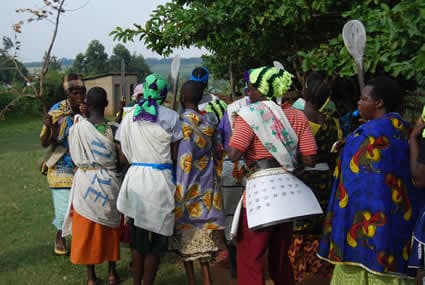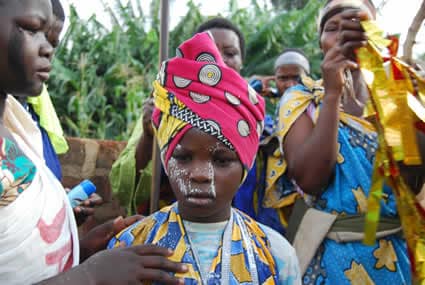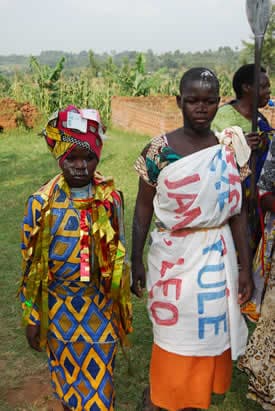Ritual circumcision, both male and female, has a high prevalence in Africa, including Tanzania. Traditional circumcision presents a public health risk and violates the rights and dignity of the individual. This article highlights the practice among one tribe in Tanzania.
Traveling north from the city of Arusha, Tanzania, one passes by the world-famous Ngorongoro crater and the vast plains of the Serengeti before coming to Musoma. The town of Musoma is located on the shore of Lake Victoria, the third largest lake in the world, whose size is greater than Britain and Germany put together.
The local people’s livelihoods are tied to the lake, as most of them are engaged in fishing, the main business that provides commerce to the town. The Mara region, home to Musoma, borders Kenya and part of the different ethnic people who live in Tanzania also live in Kenya.
There are many ethnic groups in Mara, but the major one is known as the Kurya tribe. Within this tribe, there are multiple ethnic groups that have identified themselves with the location where they live.

Each ethnic group speaks the Kurya language, but there are some differences depending on the specific dialects. These ethnic groups also have different cultural practices, such as how they conduct funeral services, their customs for when a child is born, and other manners of celebration.
Ritual circumcision, performed on both males and females, is a major cultural practice throughout the Kurya ethnic groups. It is such an important practice among the community members that when an uncircumcised foreigner comes to live among them, he or she is forced into circumcision.
How Circumcision Affects the Church
Churches are affected because their congregations are forced to undergo the ritual. During the season of circumcision, church attendance drops until the season is over.
To prevent this situation from continuing, there is a need to provide continued education, especially among children, so that they can change the society in the long run. It is important to start investing in small children, and we are working hard to protect children and act as their advocates.
Circumcision in the Kurya Tribe
Male circumcision is practiced all over the region, and female circumcision is practiced in some places like the Serengeti and Tarime districts where the Wakira, Wanyabasi, Wanyanchoka and Watimbaru ethnic groups are found. These are also the ethnic groups that fight each other from time to time.
A person being circumcised is expected to be very brave and not display any sign of fear. When being circumcised, an individual is expected to stay still and not show he or she is experiencing pain. There are people who watch to see that the person being circumcised observes the rules.
Women who circumcise others are known as “Omsali” in the Kurya language, or “Ngariba” in Kiswahili. Not every woman can be Omsali; this is a clan right that is passed down from one generation to another.

To perform the circumcision, the Omsali used to use a sharp piece of metal, which was prepared by special people. But nowadays they use a razor blade when circumcising women and a knife for men.
Why Are Men Circumcised?
The cultural norm is that men should be circumcised. If a man dies and he is not circumcised, he will be circumcised before he is buried..
Circumcision is a rite of passage from childhood to adulthood. After circumcision, the boy is no longer considered “mrisya” (a child) and has the freedom to make his own decisions. If a man is not circumcised, he is considered to be a child, even if he is over 50 years old. It is a great insult to address a man as “mrisya.” It can even ignite a great conflict, leading one person to kill another person.
Circumcision gives men the freedom to participate in funeral services. A man who is not circumcised is not allowed to come near a dead person. Circumcision gives men permission to participate in civil wars. And, circumcision gives a man the right to look after the family, which means he can marry.
If a man is not circumcised, he does not know in which age group to belong, and no girl will agree to be married to man who is not circumcised.
Women do not like to be married to a man who was circumcised in a hospital. They say they feel like they are being married to their fellow woman.
Why Are Women Circumcised?
Female circumcision is also regarded as a rite of passage from childhood to adulthood. It is rare to find a girl above age 10 who is not circumcised, and this can explain why there have been early marriages and young mothers who are less than 18 years old.

Female circumcision is done to make women less sexually active because many men spend a lot of time away from home when they go away for wars and battles against other ethnic clans.
They also perform female circumcision to try to make women not go outside the marriage and have extramarital affairs.
Women from other tribes who are married to Kurya and are not circumcised will be circumcised when giving birth.
Preparation for Circumcision
Circumcision is prohibited in July and August. Circumcision is also prohibited during years ending in the number 7, because a year ending in number 7 is considered to be a bad year.
Traditional leaders consult the spirits. The traditional leader goes to a river (Nyesiba River, in Baribari village) to ask “the snake” if it’s safe to do circumcision in that particular year.
The traditional leaders ask this question by placing two empty calabashes (a type of gourd) by the side of the river, and then they go away. The next day they come to see what has happened, and if they find the calabash full of water, they consider the year to be good and circumcision preparations continue.
But if they find the calabashes half full, they know the year is not good and they perform cleansing rituals before they continue. The cleansing is done by consulting traditional medicine men, who announce that a person (normally a pregnant woman or a young man) in the village will die. Once the chosen person dies, the cleansing has passed and the circumcision process continues.
If individuals die before they have healed from the circumcision, they will not be buried in their village. The burial will be done secretly in a neighboring village.
If the other village discovers this, they will find a way to retaliate against the people who buried their dead. This has been one of the main causes of the endless conflicts among the ethnic groups.







13 Comments |Add a comment
I work with an orphanage in West Africa. FGM is still practiced, though illegal. This is also why there are an overwhelming number of fistula patients and a (thankfully) growing number of dedicated fistula clinics around the country.
The cultural context appears to be different than in Tanzania. In this country, the directly responsible parties are the female secret societies (among the more “powerful” in all of West Africa–it can get intense!), though, of course, men do play an indirect role in this practice. The health & economic ramifications for the girl & her family, respectively, are extensive. At the orphanage, there is a policy, constituted by the national staff, that no child is allowed to leave or visit their home villages during a set two or three months of the year, as that’s when most of the initiation rites (for boys and girls) happen.
Thank you, Compassion, for bringing this issue to our attention! Praying!
To me, it is the health effects that is the concern here. Even for baby boys, if it is done in a clumsy, unsanitary way, there could be health consequences for life. For girls it is much easier to mess up, to cause many, many problems, and it can be extremely painful for the rest of their lives. I’m wondering, too, what does Compassion do to combat this? Are they addressing this issue specifically in areas where they work and this is practiced?
My husband and I sponsor 2 children in Tanzania. We met both of them in Feb. 2009 on a sponsor trip. Arusha and Ngorogoro Crater are two areas that I recognize. One of our kids is male and one is female, they both live in the farming areas and they both have supportive families. How would we know that our kids have been subjected to this? My heart just breaks. My prayer is that Compassion has reached them and their families before any of the barbarism touched them. And what of the Maasi? Do they practice this as well?
Male circ is just as terrible as female, and can also have very negative effects. Genital cutting needs to be adressed, not just here, but in other areas to. I to am curious as to what compassion has done to address this.
I don’t see how it’s just as terrible, when it was God-ordained for his chosen people. We’re talking about some excess skin for males, but an entire organ for females. Male circumcision has benefits in lower disease transmission and better hygiene.
The question is: how do you change a custom – even one as horrendous as female genital mutilation – when it is engrained into a culture? In a society where a girl’s future depends on finding a husband, uncircumcised women are considered unmarriageable, They are often shunned. The ritual is usually performed on very young children who cannot protect themselves.
Somalian fashion model Waris Dirie was circumcised at age 5. At 13, she ran away from home to escape an arranged marriage. Many years later, in London, England, she finally obtained relief from the agonizing side-effects of her childhood mutilation. Her story was published in Reader’s Digest, and you can read it at the FGM website: http://www.fgmnetwork.org/articles/Waris.html
1) Provide women options other than marriage — i.e. education, job opportunities, careers. If women have options other than marriage, whether they are “unmarriageable” or not becomes less of a concern.
2) Men need to take a lead on this issue. In these patriarchal societies, African men will be more likely to listen to other men. In these families it is the men who are making the decisions, including health decisions. Reach the men and you reach the entire family. And while you’re at it, teach the men that’s it okay and preferable to marry a woman who hasn’t had her genitals mutilated.
3) In the last decade many African nations have taken a stand against genital mutliation. Laws have been passed by governments in many countries. And we’re just now starting to see arrests being made of the ringleaders of circumcision in villages. My opinion — arrest a few people each year and prosecute them to the full extent of the law — make examples of them. Send the message that if you break this law, you will be held accountable. When a child dies — and it happens all the time — give the circumcisor the full penalty — the maximum amount of time in jail.
I do think strides have been made and the number of FGMs has decreased. Of course, we need to bring that number down to zero.
The part about it being prohibited certain years is very interesting. What if every year was a bad year? Years go by and they would have to find alternate ways of initiation from childhood to adult.
I’m greatly disturbed by this and equally disturbed by the reasons they cicumsize the girls. I sponsor a 10 year old in Tanzania… this breaks my heart for her.
from what i understand, the aftereffects for the women can be MUCH worse than the man. the scar tissue in this area causes numerous complications with childbirth including often urinary incontinence after difficult childbirths…often, leaving the woman as an outcast from her own home if she doesn’t have access to urologists who can help her problem. this is a horrible mutilation for women. for thousands of yrs., men have been circumcised as babies with very little after effects. it it brutal for the women!
I would like to know what could be done, too. Genital mutilation is wrong. I don’t know why it should be especially awful for a woman, it is just as awful for a man and just as unnecessary. The wall here is cultural, they are deep in their practice and how *could* it be combated?
fascinating. informational post but i would like to know how Compassion churches in these places are dealing with this issue.
I believe that Tanzania amended their penal code in 1998 to make female genital mutilation a crime. Of course it’s difficult to enforce when an entire community is complicit.
The World Health Organization categorizes the four types of female circumcision (female genital mutilation) as:
(i) Excision of the clitoris with or without excision of part or the entire clitoris.
(ii) Excision of the clitoris with partial or total excision of the labia minora.
(iii) Excision of part or all of the external genetalia and stitching/narrowing of the vagina (infibulations sometimes referred to as pharaonic circumcision.
(iv) Others e.g. pricking, piercing or incising, stretching, burning of the clitoris. Surrounding the vaginal orifice, cutting of the vagina, and introduction of corrosive substance herbs into the vagina to cause bleeding or to tighten the opening.
This topic really, really gets me down. It’s just a horrible thing that is being done to children. I don’t know much about the male side of things — but on the female side it is so cruel. It makes me sad to think of these little girls trusting their elders and this is what happens.
I’m curious to know SPECIFICALLY what Compassion does to combat this. Do they talk to families individually, provide information sessions for communities, distribute pamphlets warning that this practice is a criminal offense and detrimental to the health of a child? What specifically is being done?
Thanks for addressing this on the blog. It’s a really important topic.